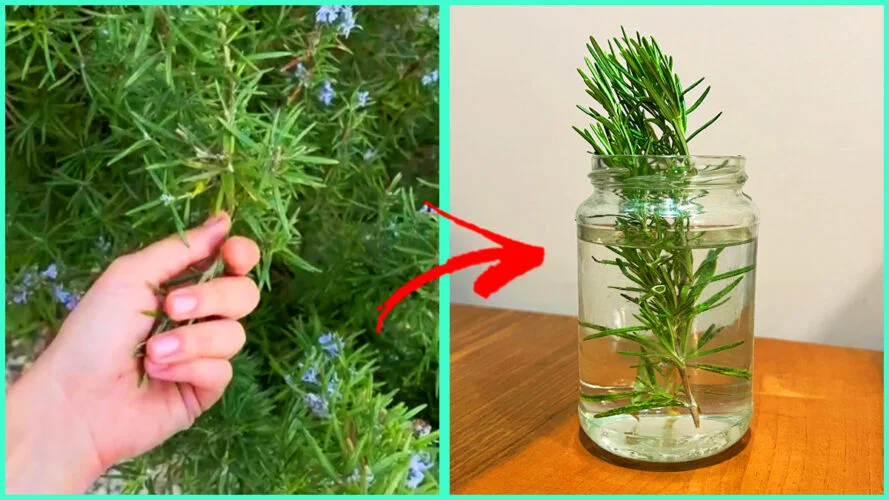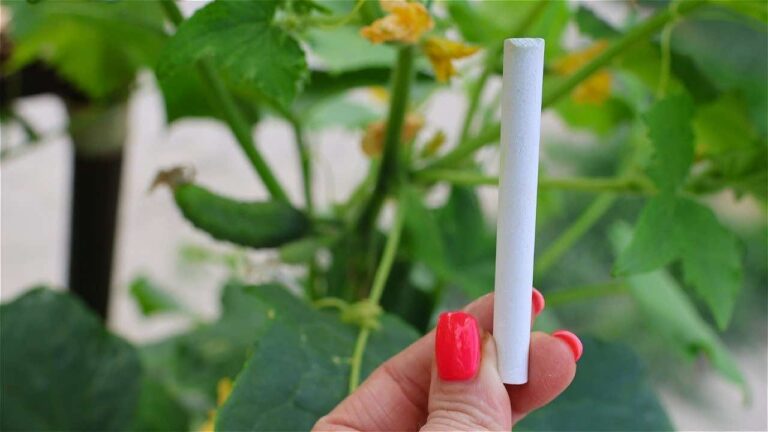HOW TO PRUNE ROSEMARY ON THE BALCONY AND REUSE THE CUT Twigs TO HAVE A NEW PLANT
An intense perfume, with woody notes, inebriating and full-bodied: the leaves of Rosemary make this perhaps the most appreciated aromatic plant and, after basil, the most cultivated.
Thanks to its resistance: since it is an evergreen plant and not too complex to grow, rosemary is often grown as an ornamental plant for balconies or gardens, as well as for the usefulness of its aromatic leaves .
But did you know that you can combine pruning and multiplication ? Let’s find out together how to reuse the cut twigs to obtain other small plants.
Pruning
First of all we must point out that the best period for pruning this plant is the beginning of spring when the cutting of the twigs is compensated by faster and denser regrowth thanks to the rising temperatures.
However, nothing prevents you from pruning this plant even at the end of summer or beginning of autumn if necessary.
When it is necessary
Understanding when to prune rosemary is important to avoid making mistakes that can seriously compromise the health of the plant .
Usually, this operation is necessary when the plant has twigs that are too long , woody and a little bare , sometimes even dry . Furthermore, it may happen that these branches destabilize the balance of the plant
How to prune
Before starting, we recommend that you get some garden shears or scissors and clean them carefully to avoid future infections of the plant.
The plant must be pruned in order to obtain an overall bushy appearance , quite symmetrical and not too dispersive.
To understand where to cut, consider that you should never exceed 4-5 cm from the tip of the branch, a maximum of 6-7 cm for very long ones. Eliminate the woodiest and oldest branches but also those within the foliage that create crossings . Furthermore, always try to make an oblique cut that promotes healing.
Never remove more than a third of your entire hair.
Oh I forgot! If you like these Natural Tips I can send them to you every day directly on WHATSAPP! Subscribe to my channel! I am waiting for you!
Multiplication
Now that you have pruned your rosemary, before doing a good cleaning of the cut sprigs, you can proceed to recover some of them and use them to multiply the plant .
Which twigs to choose
Not all freshly cut sprigs are the same. Surely, during pruning, you will have cut some longer and not too dry branches. You should choose one that still has some leaves , especially at the top.
Choose these twigs and, if they have too many leaves, remove those that are too close to the base of the twig.
How to bury them
After having recovered the twigs that correspond to the cuttings , it is time to bury them.
Prepare small pots by filling them with a mixture of sand, universal soil and peat, keeping everything very soft by watering .
Bury the cuttings in, inserting the lower part into the ground for a centimeter, at most two, and keeping the twigs in a vertical position .
Then, place the jars in well-lit spots, preferably in direct sunlight, and where temperatures are constantly above 15°C .
After a few weeks, with a bit of luck, roots may emerge from these cuttings and you will have obtained new fragrant rosemary plants… at no cost and with only a minimum of effort!
NB: remember that you can also use the sprigs of your rosemary in other ways, for example by placing the leaves in a saucepan to infuse and thus obtaining a scented mixture suitable for perfuming your entire home or creating highly scented soaps .
Cultivation in water
Less effective, but simpler is to root the rosemary cutting in water .
In this case, after cutting the branch, wait at least 24 hours so that the cut can heal. Then, put it in a glass of water, taking care that only the lower part ( about 2-3 cm ) is below the water level.
After a few weeks, roots should have emerged from the base of the cutting : the time has come to transfer the sprig into a real pot .






